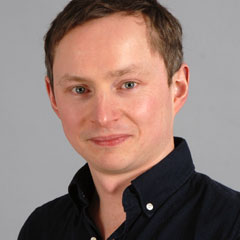Sebastian Hinde, Research Fellow in Health Economics, Centre for Health Economics
Sebastian Hinde is a Research Fellow in the Team for Economic Evaluation and Health Technology Assessment (TEEHTA) in the Centre for Health Economics at the University of York.

He joined TEEHTA in October 2010 after previously completing a BSc in Economics and an MSc in Health Economics both from the University of York. Sebastian has conducted economic evaluations in a wide range of disease areas, most notably lung cancer and cardiac rehabilitation.
In recent years, funded by the NIHR Applied Research Collaboration (ARC) programmes, he has focussed on the role of economic evaluations to inform commissioning decisions made by local decision makers.
email: sebastian.hinde@york.ac.uk
Our 60-second interview with Sebastian:
What do you do in the field of mental health?
My main area of research in mental health has been to look at the potential for ecotherapy to be cost-effective as a healthcare intervention. Ecotherapy exists in many forms, but it is broadly any facilitated therapeutic intervention that is based in a natural setting. Its aim is to bring together the benefits of nature-based activities and group support to help those with a range of mental health problems. Alongside the work of one of our PhD students, who is looking at how to conduct economic evaluations of blue and green space interventions, the aim has been to explore how we can conceptualise the full benefits of nature and nature-based interventions when we talk about the cost-effectiveness of different ways of supporting mental health struggles.
What do you find most rewarding and inspiring in this work?
As part of the project, I spoke to a few commissioners and practitioners of ecotherapy, most notably St Nicks in York which provides a range of groups and activities. Hearing about the huge belief that they have in ecotherapy to change people’s mental health and their lives was inspirational.
What is the most challenging or complicated aspect of this work?
Having spent much of my career evaluating pharmaceuticals and randomised control trials, the complexity of ecotherapy and the unique setting that each programme exists in was a huge challenge to get to grips with. The benefit of each programme being flexible to the local natural setting, needs of its users, and funding available makes it very complicated to generalise.
What impact do you hope your work is having- or can potentially have?
My real hope is that we can become better at valuing and incorporating the benefits of engaging with nature both as a health economics discipline and as a society. There is a long road ahead to get there, as most of our approaches to determining value have come about from pharmaceuticals and easily defined healthcare interventions like surgeries, but I am hopeful!
Could you share with us one piece of advice that you follow for your own mental health?
This project was a great fit for me because I’m a life-long believer in the benefits of being in nature. When my daughter was born, we bought a small patch of woodland so she had somewhere wild to play, and over the years it has become our little haven away from everything. So my advice would be get into nature in any way you can and as often as you can, and definitely leave the phone at home!